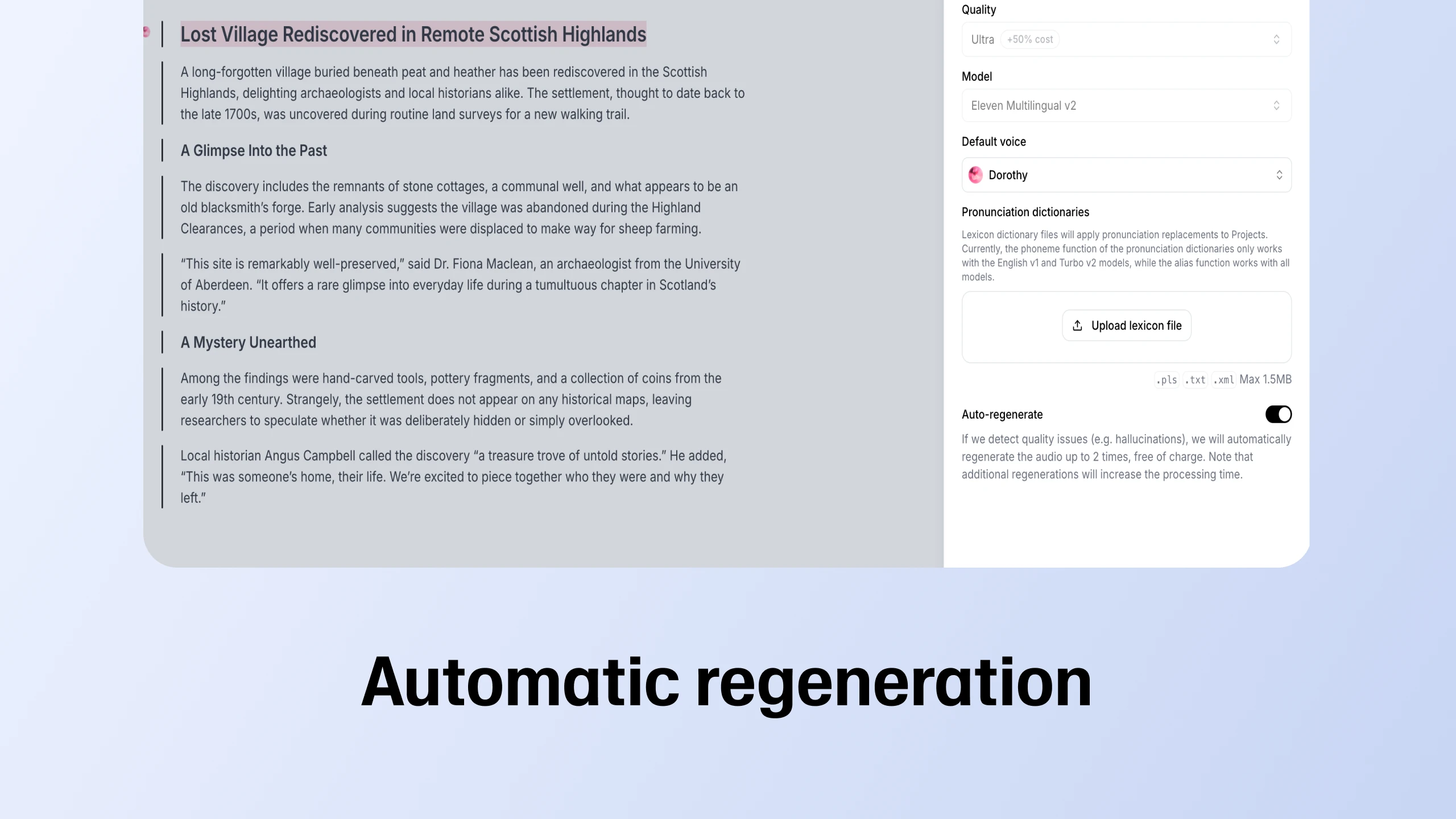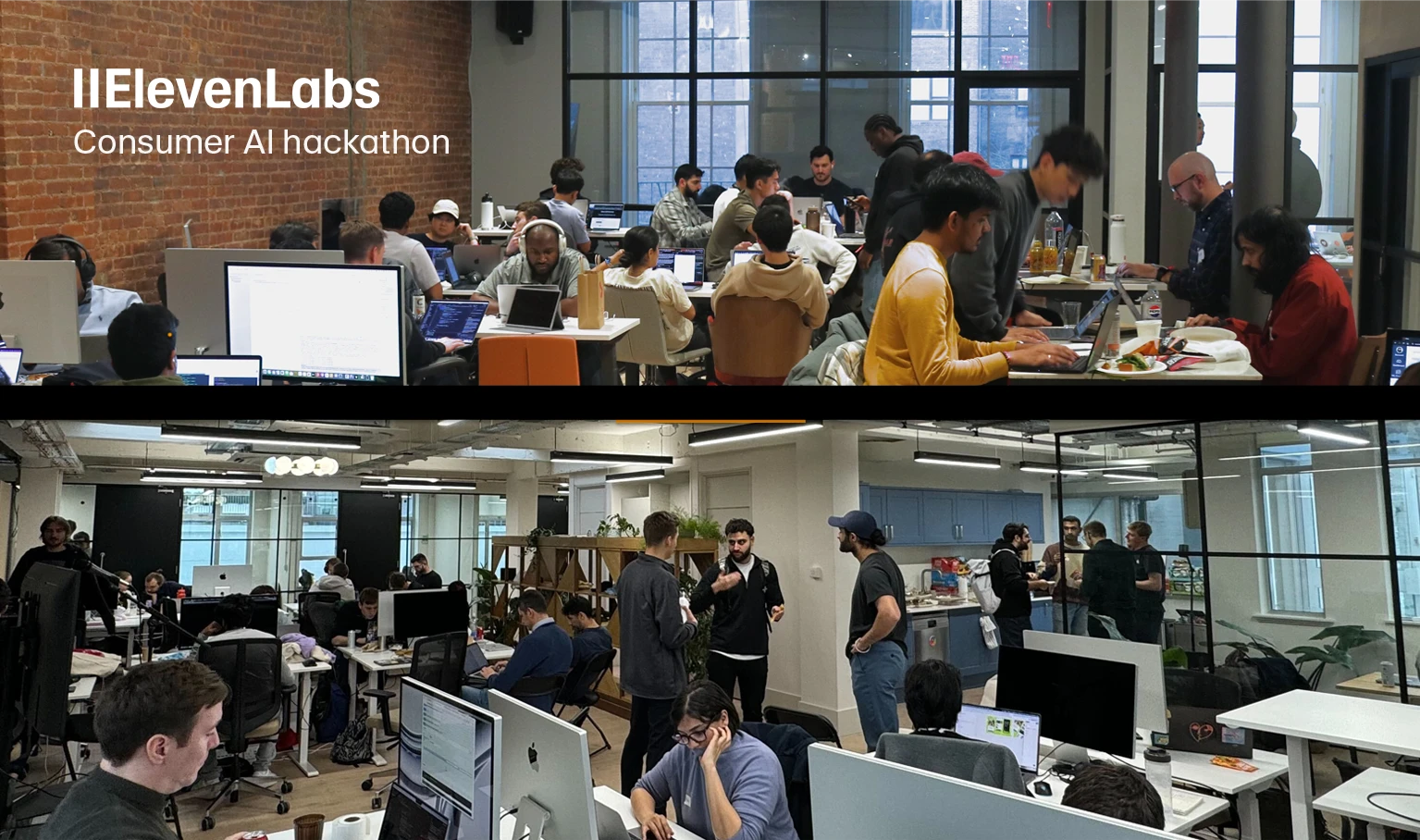
Auto-regenerate is live in Projects
Our long form text editor now lets you regenerate faulty fragments, adjust playback speed, and provide quality feedback
From game development to virtual assistants, voice cloning's potential applications are broad and exhilarating
Voice cloning is a groundbreaking aspect of speech synthesis technology that allows for the creation of a digital copy of a person's voice. It can generate speech that is nearly identical to the original voice. While this technology opens up a vast array of possibilities, it is crucial to note that consent is always required when creating a digital copy of someone else's voice.
Voice cloning holds significant promise in the realm of game development. It offers the exciting possibility of personalizing the gaming experience with the player's own voice or that of their favorite characters, with the necessary permissions. By enabling players to interact with characters voiced by their friends, celebrities, or even themselves, game developers can create more immersive experiences.
The field of content creation, which includes blogs, newsletters, and other digital media, can substantially benefit from voice cloning. Bloggers and newsletter curators can clone their voice to let readers "hear" their posts in the author's unique voice, thereby enhancing the personal connection with their audience. Similarly, YouTubers and podcasters can employ voice-cloned narration for consistent content creation, even when they can't record themselves.
Voice cloning can revolutionize the audiobook industry. Traditionally, professional voice artists narrate audiobooks. However, with voice cloning, authors can narrate their books in their own voice, adding authenticity to the narration and enabling them to express their stories as intended. This innovative approach significantly enhances the listener's experience.
Virtual assistants can become more relatable and user-friendly with voice cloning technology. Users can replace the standard assistant voice with their own or that of someone they know, with consent. This personalization takes user interactions with virtual assistants to a new level.
While voice cloning is undoubtedly a powerful tool with transformative potential, it's important to address its ethical implications. Its misuse, such as for identity theft or spreading misleading information, necessitates careful consideration. Gaining consent when cloning someone else's voice is not just good manners—it's a moral and legal imperative.
At Eleven, we are committed to taking meaningful steps to implement the necessary measures and foster educational initiatives needed to protect users and promote ethical usage of generative AI. For more information about best practices and the legal issues involved in creating and sharing content made with voice cloning technology, please consult our Voice Cloning Guide.
We also recently released the AI Speech Classifier. This first-of-its-kind verification mechanism lets you upload any audio sample to identify if it contains ElevenLabs AI-generated audio. Read more about it here, and try it out yourself
The digital era is pushing us into uncharted territories, and technologies like voice cloning are at the forefront of this evolution. From game development to virtual assistants, voice cloning's potential applications are broad and exhilarating. However, as we push forward, striking a balance between innovation and ethics is paramount. When you choose to clone a voice, ensure it's done responsibly and with consent. Remember, a voice clone can be more than a replica of sound—it can provide a uniquely personal connection with your audience.

Our long form text editor now lets you regenerate faulty fragments, adjust playback speed, and provide quality feedback

Developers brought ideas to life using AI, from real time voice commands to custom storytelling